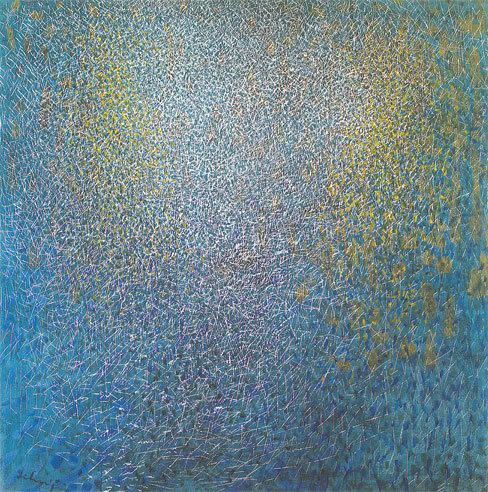 grat·tage (gră-tazh') n. A surrealist technique in painting in which (usually dry) paint is scraped off the canvas. It was employed by Max Ernst and Joan Miró. [< Fr. "scraping"]
grat·tage (gră-tazh') n. A surrealist technique in painting in which (usually dry) paint is scraped off the canvas. It was employed by Max Ernst and Joan Miró. [< Fr. "scraping"]"With Miro's help, Max Ernst pioneered grattage in which he troweled pigment from his canvases." ~ surrealism.org
Examples: Grattage works by Mario Deluigi.

Mario Deluigi (1901-1978); oil on wood, 1955, 48" x 48"
(Click on image to see larger version in a new window)
"It is not exact: my procedure involves spreading the chromatic values in such a way as to retrieve them when I scrape. So it is not that I go digging for the white, I might find pink, green, black or any other color that I deliberately put there. This is precisely what I do: spread the colors according to a prior chromatic plan, then as a next step, discover the soul of this or that color -- which has a light, one that I must construct -- which is why I cannot make a mark more imposing than that which occurs in the pre-ordained plan." ~ Mario Deluigi

2 comments:
I'm thankful that you did some research for me.
For some reason, the word "grattage" was coming up quite a bit last week, mostly in reference to Ernst. Deluigi is new to me. He really shines in his Grattage period.
Post a Comment